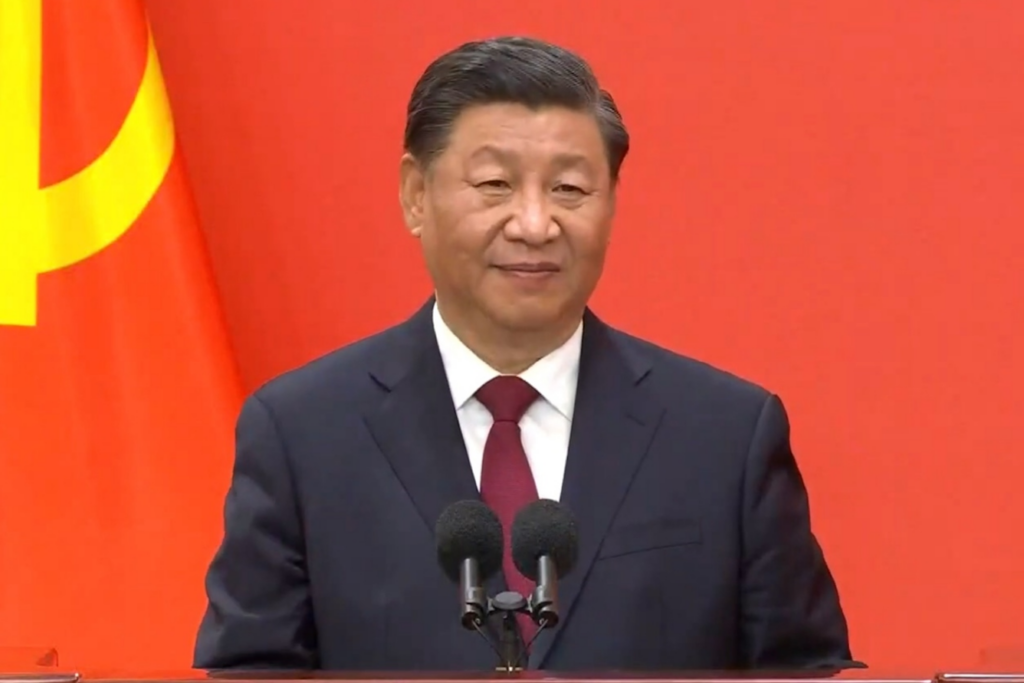Chinese President Xi Jinping has directed officials to enhance governance and accelerate high-quality development in the country’s border regions while emphasizing national security and social stability. These directives were made during a group study session of the Political Bureau of the Communist Party of China (CPC) on Monday, where Xi underlined the importance of integrating governance reforms with broader goals for Chinese modernization.
National Security as the Cornerstone of Border Governance
Xi stressed that national security and social stability must be the “bottom-line requirement” for governance in China’s border regions. These areas, which often feature complex geopolitical and social dynamics, are pivotal to China’s overall security strategy.
Key Priorities Identified by Xi Jinping
- Upholding Party Leadership:
Xi emphasized the central role of CPC leadership in every aspect of border governance. - Promoting Modernization:
He insisted that no border area should be left behind in the broader goal of advancing Chinese modernization. - Enhancing Infrastructure:
In recent years, China has developed more than 600 high-standard border villages in Tibet, especially along its borders with India and Bhutan. These villages now boast:- Accessible Roads
- Extended Power Grids
- Mobile Communication Networks
- Safe Drinking Water
- Postal Services
Focus on Cultural and Educational Integration
Xi highlighted the need for promoting the standardization of spoken and written Chinese in border areas. Unified, state-compiled textbooks are to be used to integrate these regions more closely with the rest of the country, fostering a unified national identity.
Advancing Border Studies and Research
To enhance governance, Xi called for accelerating the development of an independent Chinese knowledge system for borderland studies. This includes deeper research into theoretical and practical challenges of managing border areas.
Objectives of Borderland Studies Initiative
- To better understand governance dynamics in remote and complex regions.
- To devise policies that support the integration of border areas into China’s national framework.
- To address geopolitical challenges through knowledge-driven strategies.
Strategic Implications for Regional and Global Relations
China’s focus on border development and security has significant geopolitical implications:
- Tibet and Himalayan Border Dynamics:
- China’s push to develop border villages in Tibet reflects its strategic intent to bolster infrastructure near sensitive borders, including those with India and Bhutan.
- These initiatives aim to strengthen China’s control and influence in the region, creating a buffer zone in contested areas.
- Integration and Stability:
By prioritizing modernization and cultural integration in border regions, China seeks to reduce potential sources of unrest and align these areas more closely with national goals. - Geopolitical Signaling:
The enhanced development and governance of border regions signal China’s readiness to assert its interests, particularly in areas of historical or territorial disputes.
Challenges and Criticism
While these measures aim to enhance stability and integration, they have sparked concerns both domestically and internationally:
- Domestically: Critics argue that promoting standardized Chinese education and language in diverse ethnic regions may undermine local cultures and traditions.
- Internationally: Infrastructure development near contested borders has raised alarm among neighboring countries, particularly India, which views these developments as attempts to solidify territorial claims.
A Strategic Push for Stability and Modernization
Xi Jinping’s emphasis on national security, modernization, and governance in China’s border regions reflects the country’s strategic priorities in an era of heightened geopolitical tensions. By integrating infrastructure development, cultural unification, and academic research, China aims to bolster stability and enhance its control over these critical areas.
However, balancing these goals with respect for local identities and international relations will be a challenging task. As China moves forward with its ambitious border policies, the world will closely watch how these developments impact regional dynamics and global geopolitics.











